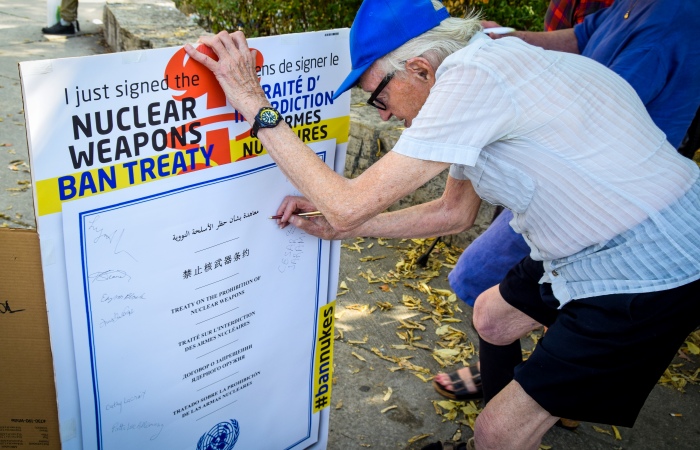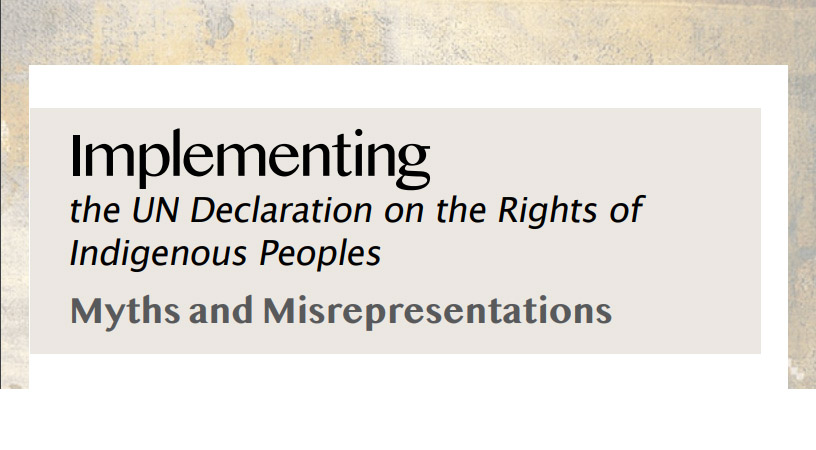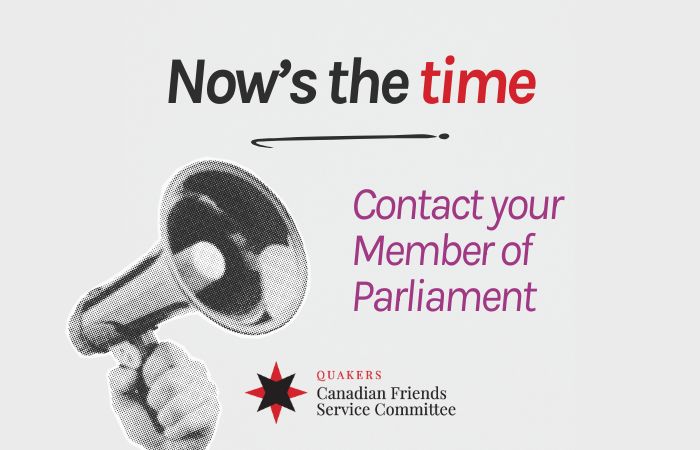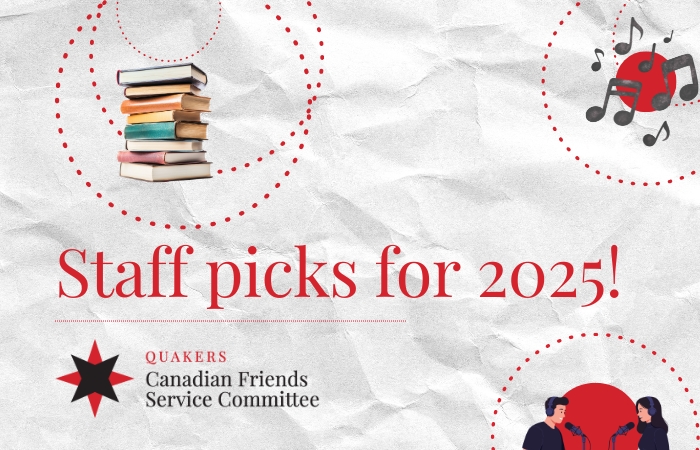
Canada can help rid the world of nuclear weapons
September 26, 2020
What you think you know about this key human rights instrument may be wrong
November 21, 2020The members of the Coalition for the Human Rights of Indigenous Peoples are appalled by acts of violence and intimidation against Mi’kmaw fishers exercising their Constitutionally protected, legally affirmed, inherent, and Treaty rights. The federal and provincial governments bear responsibility for their long-standing failure to ensure that rights affirmed by the Supreme Court 21 years ago are protected and respected.
It is our hope that the shocking events of recent weeks can still lead to a positive outcome for the Mi’kmaw people and their Treaty partners. This is a test of Canada’s commitment to implement the UN Declaration on the Rights of Indigenous Peoples. The Declaration, adopted as a global standard eight years after the Supreme Court 1999 Marshall decision, provides important guidance for moving forward in what the Declaration calls “a spirit of partnership and mutual respect.”
Mi’kmaw fishers must be able to exercise their inherent and Treaty rights to catch and sell lobster free from threats to their own safety and to their property. These rights must be interpreted and applied in a manner consistent with Canada’s obligations under the Declaration and the Constitution of Canada, to uphold the rights of Indigenous peoples – and not be used as an excuse to further entrench poverty and economic marginalization.
It must be emphasized that the Mi’kmaw fishery is miniscule in comparison to the nonindigenous lobster fishery, and faces ongoing racist opposition in other forms, such as the collusion by lobster buyers to refuse the purchase of Mi’kmaw caught lobster.
The federal and provincial governments should support Mi’kmaw governments in instituting their own livelihood fishery systems based on their traditions, values, legal orders, and ecological knowledge. Any limitations must be strictly justified by clear conservation purposes and should be developed jointly with the Mi’kmaw people. In the meantime, the failure to support and implement a livelihood fishery by government for the Mi’kmaw lobster fishery cannot be an excuse for the recent and ongoing lawless acts against the Mi’kmaw.
While the Declaration should always be read as a whole, the following provisions are important to highlight in the current context.
- The Declaration states that Indigenous peoples have the right to “the recognition, observance and enforcement” of Treaties (article 37).
- The Declaration affirms that Indigenous peoples have the right to self-determination (article 3), including the right to participate in decisions affecting their rights (article 18), to grant or withhold consent for “legislative or administrative measures that may affect them” (article 19), and to “determine and develop priorities and strategies” for exercising the right to development (article 23) and how their lands, territories and resources may be used (article 32).
- The Declaration affirms that Indigenous peoples have the right to be “secure” in the enjoyment of their own means of subsistence and their own means of development “and to engage freely in all their traditional and other economic activities” (article 20). The same article states that Indigenous peoples “deprived of their means of subsistence and development” have the right to just and fair redress.
- The Declaration also affirms that Indigenous peoples “have the right, without discrimination, to the improvement of their economic and social conditions” (article 21).
- The Declaration also states that Indigenous peoples have the right to “live in freedom, peace and security as distinct peoples and shall not be subjected to any act of… violence” (article 7).
- The Declaration calls on all governments to take effective measures, in collaboration with Indigenous peoples, “to combat prejudice and eliminate discrimination and to promote tolerance, understanding and good relations among Indigenous peoples and all other segments of society” (article 15).
- Articles 27 and 40 call for prompt and fair resolution of disputes, with “due consideration to the customs, traditions, rules and legal systems of the indigenous peoples concerned and international human rights.”
The provisions set forth in the Declaration “shall be interpreted in accordance with the principles of justice, democracy, respect for human rights, equality, non-discrimination, good governance, and good faith” (article 46). These provisions of the UN Declaration are reinforced by the fact that similar human rights protections are also affirmed in the American Declaration on the Rights of Indigenous Peoples, adopted by the Organization of American States as the minimum standards for the hemisphere.
The Truth and Reconciliation Commission of Canada called the UN Declaration on the Rights of Indigenous Peoples “the framework for reconciliation at all levels and across all sectors of society.” Our coalition encourages the federal and provincial governments to apply this framework as they work with the Sipekne’katik First Nation and other Mik’maw governments to ensure that their rights are respected and can be exercised in peace and security.
This statement was endorsed by the following organizations and individuals:
Assembly of First Nations
Amnesty International Canada/Amnistie Internationale Canada
BC Assembly of First Nations
BC Treaty Commission
Canadian Friends Service Committee (Quakers)
First Nations Summit
Grand Council of the Crees (Eeyou Istchee)/Cree Nation Government
Indigenous World Association
KAIROS: Canadian Ecumenical Justice Initiatives
Mennonite Church Canada, Indigenous-Settler Relations
Union of British Columbia Indian Chiefs
Dr. Wilton Littlechild, International Chief for Treaties 6, 7, and 8
Dr. Sheryl Lightfoot, Canada Research Chair of Global Indigenous Rights and Politics, University of British Columbia
Ellen Gabriel, Kanien’kehá:ka Activist from Kanehsatà:ke
Download this statement in PDF. Learn more about the human rights of Indigenous peoples.




